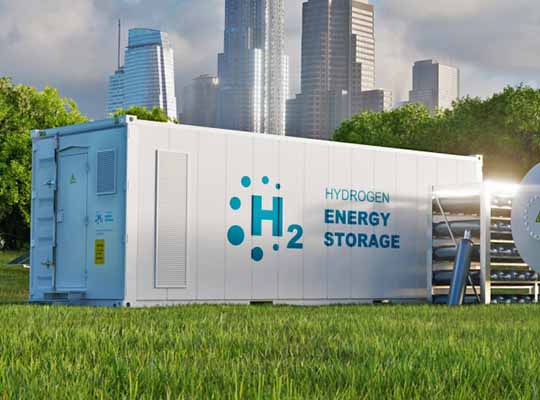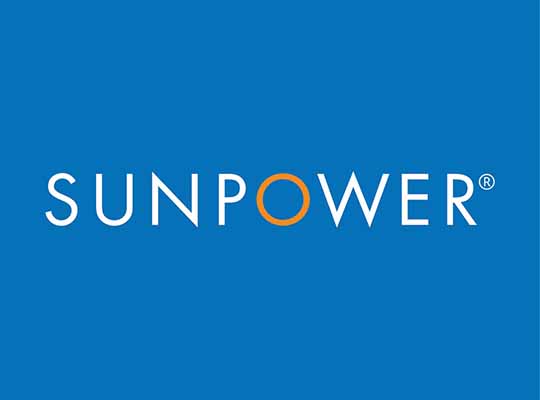SAN FRANCISCO : The global green hydrogen market size is expected to reach USD 60.56 billion by 2030, according to a new report by Grand View Research, Inc. The market is expected to expand at a CAGR of 39.5% from 2022 to 2030. Growing government investments and subsidies benefitting clean fuel usage along with hydrogen economy being touted as an environment-friendly alternative to fossil fuel economy are likely to strengthen the demand over the forecast period.
Key Industry Insights & Findings from the report:
- Alkaline electrolyzer held the largest revenue share of 66.18% in 2021, owing to its low capital cost and higher operating period capability when compared to the PEM electrolyzer technology.
- Polymer Electrolyte Membrane (PEM) electrolyzer segment is expected to witness the fastest growth rate over the forecast period owing to its lower membrane thickness, high proton conductivity, and lower gas permeability.
- Transport segment led with the largest revenue share of 40.61% in 2021. The increasing adoption of renewable energy sources in the transportation industry is expected to boost the growth during the forecast period.
- Pipeline distribution channel segment accounted for 62.07% of the revenue share in 2021. The lower cost of pipeline distribution coupled with existing pipeline infrastructure is expected to boost the market during the forecast period.
- Europe accounted for a dominant revenue share of 49.03% in 2021, owing to the presence of a high number of green hydrogen production plants across the region. In addition, massive government investments are expected to drive the market growth.
- North America is estimated to grow at a significant CAGR over the forecast period owing to the implementation of clean energy targets along with growing end-market applications such as green hydrogen being used as a fuel in fuel-cell driven vehicles.
- Asia Pacific is expected to grow at the fastest CAGR over the forecast period owing to supporting policies and large-scale green hydrogen projects announced in APAC countries such as Australia and Japan.
Green Hydrogen Market Growth & Trends
The market is driven by the proliferating deployment of renewable energy sources in various end-use industries. Green hydrogen is produced through the electrolysis of water, with renewable power generation sources such as wind energy, solar energy, and other renewable energy sources. Furthermore, the growing scale of renewable energy is estimated to result in lowering the cost of clean power generation, thereby positively influencing the market growth over the forecast years.
The alkaline electrolyzer segment accounted for 66.18% of the market in 2021 owing to being the conventional electrolyzer technology used in green hydrogen projects. The alkaline electrolyzer uses the liquid alkaline solution of potassium or sodium hydroxide as its electrolyte and it has higher operating hours than PEM electrolyzers. However, PEM electrolyzers are expected to witness a higher growth rate than alkaline electrolyzers in the forecast period.
The transportation segment was the largest in the application segmentation with it accounting for about 40.61% of the global green hydrogen market in 2021. The transportation industry shifting away from fossil fuels and towards renewable energy such as solar energy and green hydrogen is expected to boost the segment in the forecast period. The power generation segment is also expected to grow at a steady pace owing to reducing costs of green hydrogen production.
The pipeline segment in the distribution channel accounted for 63.11% of the market in 2021. A pipeline is the most economically viable method to transport large volumes over long distances. Cargo segmentation is expected to grow at a CAGR of 40.9% in the forecast period owing to increased demand for green hydrogen.
The market in North America is anticipated to attain a prominent growth rate over the forecast period, with U.S. and Canada leading the region owing to the implementation of clean energy policies. In the U.S., California holds the majority of the market share with the growth driven by aggressive de-carbonization targets, such as phasing out of gas or diesel-powered public buses by 2040.
Major players in the industry are focusing on innovation and technological advancements to reduce the high cost of electrolyzer units, boosting the commercialization of green hydrogen production. In addition, market participants are emphasizing practicing several strategic initiatives such as joint ventures, partnerships, mergers & acquisitions, and others to enhance their foothold in the market over the coming years.
Countries realizing their untapped potential in hydrogen markets are expected to enhance the industry landscape over the coming years. In October 2019, Siemens announced a technical partnership on a 5 GW wind and solar combined energy project in Australia. The company is expected to provide its electrolyzer technology to generate green hydrogen through renewable-powered electrolysis. The clean hydrogen produced is intended to be exported to Asian markets.
Green Hydrogen Market Segmentation
Grand View Research has segmented the global green hydrogen market based on technology, application, distribution channel, and region
Green Hydrogen Market – Technology Outlook (Volume, Kilotons; Revenue, USD Million, 2019 – 2030)
- Alkaline Electrolyzer
- Polymer Electrolyte Membrane (PEM) Electrolyzer
Green Hydrogen Market – Application Outlook (Volume, Kilotons; Revenue, USD Million, 2019 – 2030)
- Power Generation
- Transportation
- Others
Green Hydrogen Market – Distribution Channel Outlook (Volume, Kilotons; Revenue, USD Million, 2019 – 2030)
- Pipeline
- Cargo
Green Hydrogen Market – Regional Outlook (Volume, Kilotons; Revenue, USD Million, 2019 – 2030)
- North America
- U.S.
- Canada
- Europe
- U.K.
- Germany
- France
- Asia Pacific
- Australia
- China
- India
- Japan
- Central & South America
- Brazil
- Middle East and Africa
List of Key Players in the Green Hydrogen Market
- Air Liquide
- Air Products Inc.
- Bloom Energy
- Cummins Inc.
- Engie
- Linde plc.
- Nel ASA
- Siemens Energy
- Toshiba Energy Systems & Solutions Corporation
- Uniper SE












